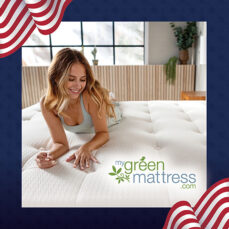A good night’s sleep is essential for our well-being, and one of the key factors in achieving this is having the perfect comforter for you. A comfortable and cozy comforter can make a significant difference in your sleep quality. But, everyone has unique needs in terms of which comforter is perfect for them. This guide will help you navigate the world of comforters and choose the one that best suits your needs and preferences.
Do You Sleep Hot or Cold?
First thing’s first. Before diving into the specifics of choosing a comforter, let’s consider a crucial aspect of your sleep life that should guide your bedding choices. Do you sleep hot, or cold?
- Hot Sleepers:
If you tend to sleep hot, it means that you often feel warm or even overheated while you sleep.
You might sweat during the night or kick off blankets to cool down.
People who sleep hot typically prefer bedding and sleep products that help regulate temperature and promote cooling, such as breathable fabrics and lightweight blankets. - Cold Sleepers:
If you sleep cold, it means that you feel chilly or cold during the night, even if the room temperature is not particularly low.
You may find it difficult to get warm and comfortable in bed.
People who sleep cold usually seek bedding and sleep products that provide warmth and insulation, such as thicker blankets or comforters.
Bed Size and Allergies
There are a few other personal preferences to consider, as well.
- Do you have allergies? If so, you might need a hypoallergenic comforter. Generally, those with allergies might consider staying away from down and wool.
- What is your bed size? Ensure that the comforter fits your bed properly. Measure your mattress before shopping.
Fill Material
Now let’s talk about fill material. Comforters come with a variety of fill materials, which is the essential ingredient in the comforter. The most common fill material options are:
- Down: Down–which is the small feathers found underneath the external plumage of ducks and geese–is one of the most common fill materials for high quality comforters. Down offers exceptional warmth and lightness, but it can be expensive. Look for high fill power for better insulation. Down is breathable but warm. Hot sleepers could be overheated by it, but this also depends on “fill power”. Down is not hypoallergenic and can cause problems for those sensitive to allergens.
- Synthetic: Hypoallergenic and more budget-friendly, synthetic fills are great for those with allergies. Synthetic fill can also be warm, but tends not to be as fluffy and luxurious. Comforters made with synthetic materials are often machine washable, so these are good options for children’s beds.
- Down Alternative: Mimics the warmth and fluffiness of down without animal products.
- Wool: Natural, breathable, and temperature-regulating, wool is an excellent choice for various climates.
- Silk: Luxurious and lightweight, silk comforters are ideal for those who want a touch of elegance.
The Specifics
Now let’s get into the details.
- Fill Power: For down comforters, consider the fill power, which indicates the fluffiness and insulation quality. Higher fill power means better insulation. Look for a fill power of 600 or higher for a quality down comforter.
- Thread Count: The thread count of the comforter cover affects its durability and softness. Higher thread counts typically indicate a softer, more durable cover. A count of 300-400 is a good range to aim for.
- Organic Materials, and Ethical Down: Look for organic materials for the comforter cover and woven material on the comforter. You may also consider buying ethically sourced down (or recycled down) from companies who can show where the down comes from.
- Warmth Level: Comforters come in various warmth levels, such as lightweight, medium-weight, and heavyweight. Choose the warmth level that suits your climate and personal preferences.
- Care and Maintenance: Consider how easy it is to care for your comforter. Some are machine washable, while others require dry cleaning. Follow the manufacturer’s care instructions to maintain your comforter’s quality.
- Brand and Quality: Invest in a reputable brand known for producing high-quality bedding products. Read customer reviews and ask for recommendations to ensure you’re getting a durable and reliable comforter. We like the organic cotton comforter options available at Pact.
- Price: Comforters come in a wide range of price points. While it’s tempting to go for the cheapest option, remember that a quality comforter is an investment in your sleep quality and comfort. Set a budget that aligns with your needs and preferences.
Choosing the perfect comforter requires careful consideration of your personal preferences, sleeping habits, and budget. Take your time to research and explore different options before making your purchase. With the right comforter, your quality of sleep will be higher and you’ll get more out of your day!









